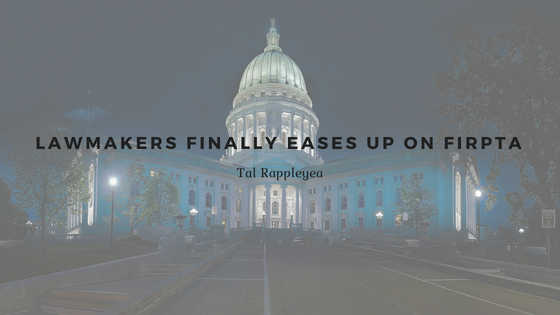In 1980, Congress passed a law that sought to prevent foreign investors from buying US property. Known as the “Foreign Investment in Real Property Tax Act”, the act would force foreign investors to pay income tax if they were to sell their US property. Lawmakers passed the act out of fear that these investors would come in and scoop up massive amounts of land, especially farmland.
Ever since this ruling occurred, the commercial real-estate industry has been doing it’s best to change the minds of these lawmakers. They pointed out that the law discouraged investments and were the shadowy remains of a protectionist era. Last month though, the industry finally got a win. Congress passed new tax measures and wide spending, which in turn, relaxed the former law. As a result of this move, it’s expected that foreign investors will spend billions of dollars on malls, office buildings and various apartments throughout the country. The market for these properties have been prosperous already, and that’s not expected to slow down any time soon now.
Major cities have always attracted buyers to their commercial properties, even though they currently sit at a record high. New York City had a historic year for real estate as over seventy billion dollars in sales occurred in 2015. Foreign investors had a small part in that as their numbers grew over the year, despite the old tax law. Pension funds have been a large source of foreign dollars spent on the economy as they buy up different properties around the US. Most of them only buy up to forty-nine percent in a specific property as a way to avoid the tax law. However, since the money comes from a fund, these investors end up sharing control with several others.
So, what changed in the law then? Foreign pension funds are now allowed to sell the properties they own without paying taxes along the way. These pensions already spend over billions of dollars on various properties over the year, and now that number is expected to increase. Besides being able to sell properties along the way, investors are now able to own up to ten percent of a real-estate company that is publically traded before being forced to pay additional taxes. This is double the amount they were allowed to own before.
What took so long to get to this ruling? Members of Congress were stalled over how they would cope with the loss tax revenue that would occur as a result. They had not passed many tax bills over the past couple years and the changes to this bill were set to cost around 4.25 billion dollars over a decade. However, it’s estimated that 1.9 billion dollars will be raised instead as companies will not be able to spin their properties into investment trusts. These trust don’t pay taxes.
In the end though, it’s expected that foreign investors will take advantage of the change in law and we will see a rise of investors in US properties.
